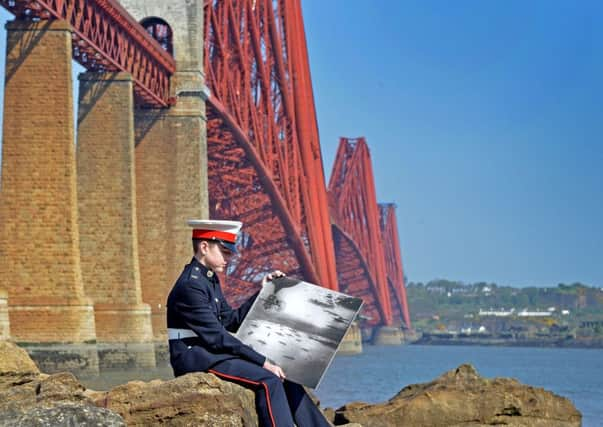Keith Brown: How Jutland changed course of war


Centenary commemorations of the First World War started in 2014, and over the past two years Scotland has proudly remembered and marked some of the most horrific wartime tragedies our country has ever seen.
No home, no school, no community in Scotland was left untouched by the devastating impact of the First War, which remains one of the most brutal conflicts the world has ever seen. Scotland’s losses were, per capita, among the highest of any combatant nation, and the war’s effects on our nation were profound and long-lasting.
Advertisement
Hide AdAdvertisement
Hide AdThis weekend sees Scotland unite to remember thousands lost at sea during the battle of Jutland, the Royal Navy’s greatest battle of the war, 100 years ago.
Between 1914 and 1918, the First World War claimed the lives of around 145,000 Scots, leaving many more thousands injured or disabled and forcing friends and loved ones across the country to come to terms with the terrible consequences.
In what was the largest naval battle of the First World War, the Battle of Jutland claimed the lives of more than 6,000 British men and more than 2,500 Germans. It was the only time that British and German fleets of Dreadnought battleships met in combat, involving 250 ships and around 100,000 men.
Despite the loss of life and ships on both sides, the Battle of Jutland confirmed British naval dominance. The outcome played a pivotal strategic role: by securing control of shipping lanes it paved the way for Britain to implement the blockade that would contribute to Germany’s defeat in 1918.
When we mark particular First World War tragedies – those with profound imprints on individuals, families, communities, and regiments – we also reflect on the sacrifices made by generations of servicemen and women, including those currently serving today.
As part of the centenary commemorations, the Scottish Government has been committed to protecting the memory of battles lost and won, the survivors and the fallen: our glorious dead.
Remembrance projects include the National Records of Scotland digitally archiving 26,000 wills of soldiers who died in the First World War, which has presented a unique glimpse into the lives of the individuals who fought and fell for our freedom. They are small but powerful documents: some poignantly written by young men on the morning of 13 November, 1916, just before going over the top to attack the German positions.
War monuments play a central role in educating our young people about the ultimate sacrifice members of their community have paid in conflicts throughout the generations. They are a lasting tribute to fallen service men and women and it is hugely important that they are maintained. We owe our freedom to the names on these memorials and it is only right to keep these monuments in a proud condition, reflecting the respect their memory deserves.
Advertisement
Hide AdAdvertisement
Hide AdThe £1 million Centenary Memorials Restoration Fund supports the repair and conservation of any war memorial of any type anywhere in Scotland. The scheme was launched in 2013 and will run through the centenary of the First World War.
Art projects have also been inspired by the centenary. Dazzle camouflage was invented by marine artist Norman Wilkinson and used extensively during the First World War to confuse the enemy, making it hard to determine the range, speed and direction of travel of the “dazzled” vessels. As part of the centenary programme, the ship Every Woman (formerly MV Fingal), has been “dazzled” by artist Ciara Philips. Philips was drawn to the largely untold histories of women in the First World War, including the team of women who worked under Wilkinson to develop the designs.
Scotland embarked on a journey of commemoration and has united to remember major military battles with a particular resonance for Scotland, such as those at Loos, and the observance of the anniversary of significant domestic events, such as the train crash at Quintinshill, near Gretna with many other key dates and events still to be marked during the centenary.
At the end of the Commonwealth Games, we acknowledged the contributions of Commonwealth countries we fought alongside during the First World War with a service at Glasgow Cathedral.
This weekend, hundreds of people, both young and old, will line the streets of Rosyth and South Queensferry to remember the Battle of Jutland.
Throughout the centenary, people in communities across Scotland have, and will continue to, gather together to remember the exceptional sacrifice made by their sons and daughters during the brutal conflicts of the First World War.
Commemoration events such as for the Battle of Jutland, reading the wills of young soldiers killed in conflict, and the preservation of community war memorials through the Centenary Memorials Restoration Fund will help this and future generations learn more about the soldiers, their families, the regiments and circumstances during a pivotal time in our nation’s history.
By reflecting on these devastating events, and the consequences they had for communities the length and breadth of Scotland, we will help people of all ages in this country understand more about the futility of war and strengthen our resolve to never let a tragedy like the First World War happen again.